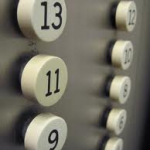Since the number of funds we can cover in-depth is smaller than the number of funds worthy of in-depth coverage, we’ve decided to offer one or two managers each month the opportunity to make a 300 word pitch to you. That’s about the number of words a slightly-manic elevator companion could share in a minute and a half. In each case, I’ve promised to offer a quick capsule of the fund and a link back to the fund’s site. Other than that, they’ve got a few hundred words and precisely as much of your time and attention as you’re willing to share. These aren’t endorsements; they’re opportunities to learn more.
On May 23, 2019, Harbor Capital Advisors did a hard reset on Harbor International Small Cap (HIISX). Over its first three years, the fund’s returns trailed nearly three-quarters of its peers and  only a tiny bit less volatility. Harbor chose to empanel a new subadvisor, Cedar Street Asset Management. Cedar Street was founded in April of 2016, as an employee-owned investment management firm and has approximately $250 million in assets under management as of June 30, 2019.
only a tiny bit less volatility. Harbor chose to empanel a new subadvisor, Cedar Street Asset Management. Cedar Street was founded in April of 2016, as an employee-owned investment management firm and has approximately $250 million in assets under management as of June 30, 2019.
The new management team is Jonathan Brodsky, Founder and Principal, and Waldemar Mozes, Director of Investments for Cedar Street. Mr. Brodsky co-managed Advisory Research International Small Cap Value (ADVLX) from 2010-2016, Calvert International Opportunities (CIOAX) from 2011-2016 and Acuitas International Small Cap (AISCX) from 2014-2016. Prior to joining Cedar Street, Mr. Mozes worked with TAMRO Capital Partners LLC as a manager, starting in 2008, after stints with Artisan Partners and The Capital Group, adviser to the American Funds. At TAMRO he developed the international small cap strategy and managed the ASTON/TAMRO International Small Cap Fund (AROWX/ATRWX) from its launch in 2014 to its untimely liquidation in January, 2016.
In the topsy turvy world of asset management, M&A Advisory Research was bought in 2010 by Piper Jaffray then sold again in 2019 while Aston was bought in 2016 by AMG, with all of its funds absorbed or liquidated.
Cedar Street Asset Management was specifically founded to provide a value-focused investment service free of such conflicting ownership structures. With the Harbor International Small Cap fund, the managers are seeking long-term growth of capital. The plan is to invest in a fairly compact portfolio of small cap stocks, primarily but not exclusively domiciled in developed international markets, using Cedar Street’s disciplined, valued-oriented approach.
Thinking about international small cap investing
As the name requires, the team will invest in international small caps. Over the past five years, that’s not been a happy place. The average international small- to mid-cap value fund has returned under 1% a year and the average core fund made just 1.3%. International smid-cap growth returned 3.6%, which looks great in comparison to the other two group but substantially trails even low-risk assets like muni bonds.
There are, nonetheless, reasons to take the asset class seriously.
1. International small caps are a major asset class.
In rough terms, four-five thousand stocks, 46 countries with, depending on how you count, somewhere between 100-200% of the total market capitalization of the two thousand US small caps. Collectively, their market cap is over $5 trillion, which is about 6% of the global stock market.
2. You’re underexposed to them.
The average US investor holds about 15% of their portfolio in international stocks but the average “core” international fund only has 1.5% of its money in small cap stocks. In rough terms, the average US investor might then have 0.225% in international small caps, about a 25:1 underweight.
The bias toward international large caps is ironic since small caps have greater price inefficiencies linked to low (and falling) analyst coverage, substantially higher 10-year returns than their large cap peers, higher risk-adjusted returns, lower correlation to the US market and better valuations. And their advantage over international large caps has been persistent over time and across markets.
As of May 2019, GMO projects international small caps to have higher returns than any asset class outside of the emerging markets over the next five to seven years.
The Cedar Street plan
Supported by a team of three analysts, the two PMs will build a portfolio of 50-70 international small cap stocks. The current market cap range for their universe is about $100 million – $8 billion. While they have the authority to invest in emerging markets, they anticipate that direct EM exposure will be “minimal.” Position sizes will be “conviction weighted” but any individual position is capped at 5%. They anticipate turnover in the range of 25-35% which implies a typical holding period of three to four years.
In building the portfolio, they give exceptional attention to downside protection. The team’s investment process review places the “downside review” before the “upside analysis,” which strikes me as singularly sensible. They have a strong preference for value-priced stocks of firms with solid underlying businesses and clean balance sheets. They also spend a lot of effort in a governance analysis. They argue that “Because of varied laws around corporate governance and knowledge of the local players in the markets and their views on minority investors, Cedar Street feels that a detailed review of corporate governance practices is key to success in this space.”
There are, by Lipper’s count, 116 international small- to mid-cap funds, about a dozen of which are quite good. We asked Messrs. Brodsky and Mozes to reflect a bit on what made them think the world needed a 117th strategy and why thought they might make it into The Distinguished Dozen. Here are their 300 words on the matter:
What sets our firm apart is our unique culture focused exclusively on capturing the inefficiencies that consistently present themselves in non-U.S. small caps. It all starts with our team. Every investment team member brings a unique set of work experiences and diverse perspectives to the firm. Each team member has also earned an equity ownership stake based on significant contributions to the firm. We also make investment decisions collaboratively based on this long-term, ownership mentality. As a result, every investment idea hews to our value-based principles and every potential idea is vetted with a consistent, rigorous process prior to gaining entry into our portfolios. This cultural cohesion allows us to maintain our focus even when our value-oriented style may be out of favor.
The other key attribute that differentiates us is the breadth of valuation inefficiencies that we are able to capture as a team thanks to our diverse work experiences, language skills, cultural backgrounds, and educational training. Our value philosophy still means that we buy stocks trading at inexpensive absolute and relative valuation multiples. But instead of capital-intensive, highly-levered cement companies trading at a discount to book value, we are experts at capturing value from a more dynamic universe of secular growth opportunities such as the electrification of automobiles, increasing use of renewable materials for consumer products packaging, digital advertising, and the growth of protein-rich diets of emerging consumers. We do all of our own investment research, which means we often find companies that are overlooked by brokers or unloved by local investors. When combined with our rigorous balance sheet and corporate governance review, our investment process produces a portfolio of companies that have above-average, through-the-cycle returns on equity or invested capital, with below average leverage and volatility.
The administrative details
The minimum initial investment for the retail shares (HIISX) is $2,500 and the expense ratio, after waivers, is1.32% on assets of $54 million. The fund offers three other share classes.
| Name / ticker | Expense ratio | Minimum investment |
| Administrative HRISX | 1.20 | $50,000 |
| Institutional HAISX | 0.95 | $50,000 |
| Retirement HNISX | 0.87 | $1,000,000 |
The fund is available through Schwab, TDAmeritrade, Vanguard and a few other platforms. Its website, Harbor International Small Cap, doesn’t yet offer commentary from the Cedar Street team. The Cedar Street Asset Management site isn’t noticeably richer, except for a bunch on video clips (2016-19) on the In the News page. Those mostly offer commentary on external events (“X is overpriced”) rather than discussions of strategy and approach.
The general case for international small cap investing was nicely summarized in a December 2018 white paper from AMG and in a July 2019 one from two of the guys at Harbor Capital. It’s worth reading for folks new to the field. Mike Lipper, president of the Royce Funds, has a comparable piece (May 2019) but it requires a slightly annoying registration in order to get access.












